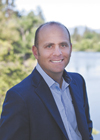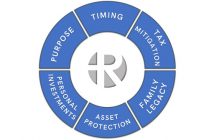
Once upon a time people retired in a beautiful town located on a bend in the Deschutes River after spending many years working in the lumber mill. At the age of 65 they had a reasonable expectation they could live out their remaining 12 to 15 years comfortably, thanks to their pension, Social Security and a steady flow of dividends and interest from safe, conservative stocks and bonds. No more! What has changed?
People are living much longer, more active lives than ever before. A typical retirement these days could last for more than three decades and it is more likely to involve mountain bikes, skis and stand up paddle boards than rocking chairs.
In the past Social Security and Medicare were considered a sure thing. Today we face potential cutbacks as health-care costs simultaneously skyrocket.
Pension plans have been phased out as the shift from traditional pensions to 401(k)’s made retirement a more risky prospect because retirees must manage their investments and control spending on their own. Retirees were certainly startled in 2008 when they witnessed their holdings inside of their 401(k)’s plummet. Fortunately the markets have experienced significant growth since then but now their bond yields have hit rock bottom and CD’s are only offering negligible returns. With an estimated 10,000 people retiring a day, it is no wonder that the primary concern among many retirees is simply making ends meet.
The true issue is: Is our income going to outlive us or are we going to outlive the income? Here are some facts that we must all consider as we plan for or approach our years of financial independence.
Longevity: The average US retirement age is 62.¹ If a husband and wife are both that age, the average age at which the second spouse will die is 92. What this means is that we need to have a lifestyle-sustaining income that must last an average of 30 years. More years of retirement now need to be financed.
Maintaining Purchasing Power: There are ten very important words everyone needs to keep in mind: Every year everything you need to buy will cost more! With inflation historically averaging close to 3.5 percent on an annual basis- the cost of living will double every 20 years. How will you prepare for this? Maintaining purchasing power throughout retirement is imperative.
The Right Balance: Most retirees seem to shift to fixed- income (bond) investments at the very time they need rising income to maintain purchasing power. Equities have been the only asset class that has always increased income more than the cost of living over every 30 year period in American history and yet equity mutual funds have been in net liquidation for over five years while assets in bond funds have doubled over that same period of time.² Bonds should be an integral part of one’s portfolio but what is the right combination of stocks and bonds for you at this stage of your life?
Depleting Principal: Many new retirees have grown used to a certain standard of living that in retirement his or her assets may not be able to support. Telling a spender who is saving but still spending much more than they will be able to afford in retirement to start budgeting is not easy but it is exactly what many people need to do. Are you saving enough to live the life you have imagined in your retirement years? No one wants to become a financial burden to their children.
Spendthrifts: Many of today’s “Baby boomer” retirees are spenders. They aren’t as concerned about keeping their principal intact as their parents were. They’re more concerned about their spending needs. Many retirees have tightened their belts as a result of the economic crisis- learning to distinguish between needs and wants. Unfortunately others have not.
Appropriate Distributions: It is important to have a custom and detailed financial plan. Discussions should focus in on the financial ‘musts’ and then ensure that cash flow is appropriate to those needs with sufficient reserves available to get through difficult markets. A sound distribution plan can weather the volatile times while providing financial needs.
It all comes back to living within your means and re-evaluating what those means are. There are lessons we can learn from those who lived here in Central Oregon back when the Brooks-Scanlon and the Shevlin-Hixon mills were the largest timber mills of their day, making Bend a very prosperous place to live, work and play.
¹US Census Bureau. ²www.FA-Mag.com.
David Rosell is President of the Rosell Wealth Management in Bend. He is the Past President of the City Club of Central Oregon and a Past Chairman of the Bend Chamber of Commerce. David can be reached at (541)385-8831 or www.RosellWealthManagement.com.
Investment advisory services offered through Rosell Wealth Management, a State Registered Investment Advisor. Securities offered through ValMark Securities, Inc. Member FINRA, SIPC 130 Springside Drive, Ste 300 Akron, Ohio 44333-2431. 800 765-5201. Rosell Wealth Management is a separate entity from ValMark Securities, Inc.





